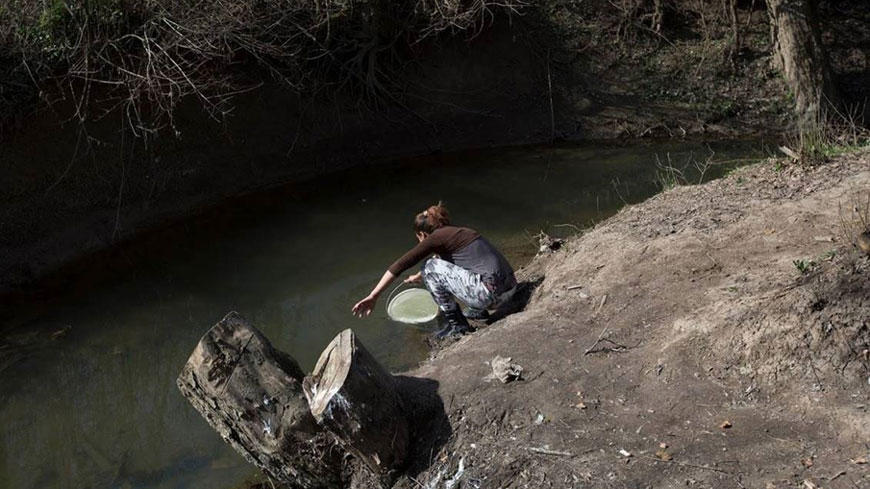Every year, on the occasion of International Roma Day, governments are reminded of the need to improve the living conditions of the many impoverished and marginalised Roma in Europe and step up measures to combat the discrimination they face. This call should resonate even more loudly this year, as Roma people living in substandard housing and in segregated settlements across Europe are among the groups most vulnerable to the current COVID-19 pandemic.
In many places in Europe, Roma still lack access to clean water and sanitation. This makes it very difficult to apply crucial hygiene measures such as regular hand washing. It is also unlikely that social distancing and isolation measures can be effectively implemented in overcrowded housing. Governments in some countries, such as Slovakia, have requested from local authorities that they provide Roma settlements with unlimited access to water. These essential measures must be implemented urgently, including by local and regional authorities, in all areas across Europe where Roma lack access to water and basic sanitation.
An additional issue of concern is access to health care for persons living in informal and segregated settlements, which can potentially be difficult, especially for the many Roma who still have no identity documents and those who lack health insurance cover.
Other pressing issues facing many Roma in the current crisis are the loss of sources of daily income and reduced access to social benefits, which have often been made more difficult by quarantine measures. This could result in people experiencing serious difficulties in meeting even the most basic needs, including feeding themselves. With the closure of schools, where children of poor families often get their only adequate, nutritional meals, the problem has clearly become more pressing.
Travellers, who have long suffered from a shortage of halting sites in several Western European countries, can also be faced with an inextricable situation in times of quarantine and isolation. While some authorities, for example in Belgium and Wales, have requested that municipalities provide Travellers with access to sites where they can stay for the duration of the pandemic, I understand that problems have arisen in other places. I was for instance informed that on some halting sites in France, Travellers have been unable to access electricity and water as a result of the site owners having left due to isolation measures. It is also crucial that all evictions be stopped during the entire duration of the crisis.
To make things worse, I am informed that Roma have been scapegoated and targeted by hate speech in different places in the context of the COVID-19 pandemic. In Bulgaria, for instance, politicians and some media have referred to Roma people as a threat to public health and requested special measures targeting them on this basis. Local authorities have set up police checkpoints around Roma settlements to enforce quarantine measures and, in one place, erected a fence around a Roma settlement to better control movements. While action to ensure adherence to confinement rules can be justified in the present circumstances, these cannot be selectively applied to people, neither fully nor partially, on the basis of ethnicity.
I urge governments to issue and implement crisis plans which ensure that Roma and Travellers benefit from the same level of information as others and from access to basic sanitation - first and foremost clean water – in order to be prepared to cope with the pandemic. NGOs, activists, health mediators and community leaders - whose work to inform, monitor the situation and meet basic needs is heartening in these difficult times – cannot be left alone to face this situation. They should receive means and support from the authorities. The latter should also ensure equal access to health care, irrespective of the place of residence and the legal status of the persons in need.
In the current context, there should be no place for hate speech and discriminatory measures. They only exacerbate fears and divisions in societies. What we need to overcome the pandemic is unity and solidarity.



